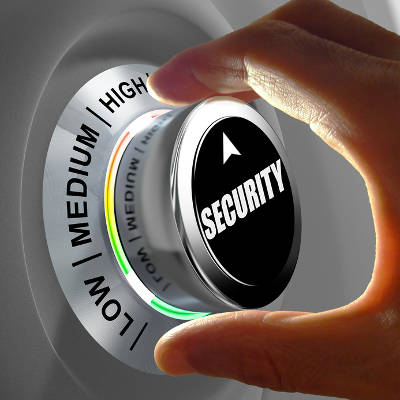Security is one of the main pain points for all businesses, but it can be tricky to implement solutions if you’re not sure of exactly what you need. If you need to tighten up security in your office, use this checklist of essential safety measures as a starting point to help you improve online security for your business.
Use Strong Passwords
Passwords are a frontline defense for anyone working online. Since strong passwords are tough to remember, users will often use short passwords that are easy to recall. The problem is that they may also be easy for cybercriminals to crack. Strong passwords should always be used, and should include both upper and lower case letters, numbers and even special symbols, if they’re permitted.
Use a Password Manager
With a password manager, there is no longer any excuse to not use a secure, complex password. A password manager eliminates the problem of trying to remember complicated passwords by storing them securely in a digital space. They’re always available when needed, without the need for memorizing difficult sequences that are easy to forget or get wrong.
Use Two-Factor Authentication
Passwords are essential, but they aren’t a foolproof way to protect your accounts. Two-factor authentication, or 2FA, gives your online security a big boost. 2FA requires a secondary credential, which must be entered in order to access an account. You might have to enter a code sent by SMS to your phone, for example. If a hacker sees that they need not one, but two, methods of authentication to access your account, they will be less likely to pursue the possibility.
Avoid Unnecessary Online Payments
Purchasing online generally involves using your credit card credentials through a secure interface provided by the retailer. However, you only want to plug these credentials into a secured website -one that uses encryption – to avoid your financial details being stolen. When you enter confidential or sensitive information online you always need to check that it’s going to be encrypted, unless you’re 100% sure you’re dealing with a real and reputable site.
Avoid Links and Attachments in Unsolicited Messages
Spam messages often include dangerous links that can install malware on your computer or direct you to malicious websites. Some malware, including ransomware, could become a huge headache for your organization. These security threats are spread primarily through spam, so make sure you are protected with a spam prevention solution. Being alert to the possibility of scams is half the battle when maximizing online security.
Avoid Public Wi-Fi
Hackers often take advantage of public Wi-Fi connections specifically because they are often unsecured. Public Wi-Fi can be fine for some purposes, but beware of using them to transmit or receive confidential information and personal details. Always use a secured, private Wi-Fi network if you can.
Upgrade Your Operating Systems
Older operating systems generally have more security flaws in them. Older operating systems are often unsupported, so they don’t receive patches or security updates at all. If you don’t want to upgrade just yet, resolve to move on from them as soon as possible. Critical security flaws are often resolved with routine patches and security updates, so if you haven’t installed them for your current, supported OS, you should do so at your earliest convenience.
Our trusted professionals can help you implement a solid security solution that takes a comprehensive approach to cyber threats. To learn more about how we can help your business to improve online security, call Quikteks Tech Support at (973) 882-4644.

